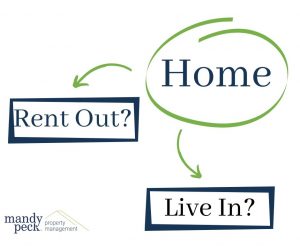
Could rent-vesting be the key to building wealth and your dream lifestyle?
In recent years, the concept of rent-vesting has grown in popularity as property prices around inner-city suburbs grew rapidly. For example, you may have wanted to enter the property market close to Melbourne’s CBD but didn’t have a large enough deposit saved. With rent-vesting, you can invest in one area you may not live in while renting in your dream neighbourhood.
Rent-vesting gives you the best of both buying and renting as you’ll have entered the market, but you’ll also have the opportunity to live wherever you like. You may, for example, be able to afford to buy in an area where the mortgage repayments will be $3,500 per month, while renting in the same area may cost $1,800 per month. If you rented in the area, this would leave you with $1,700 to invest in a property. There are many pros and cons to this strategy which we’ve outlined below.
What are the pros of rent-vesting?
Lifestyle
One of the key pros of rent-vesting is the ability to live in a wide range of suburbs. Some highly sought-after areas are affordable for renting, whereas buying in the area may be very expensive. Renting in such an area may give you access to good schools, a safe neighbourhood, a higher standard of property and lifestyle amenities.
Enjoy the perks of being a tenant
As a property investor, you know that repairs and maintenance are the landlord’s responsibility. Rent-vesting allows you to take advantage of this convenience while any repairs and maintenance on your investment property are a tax deduction.
Location flexibility
One of the best parts about renting is that you can live in a range of areas, choosing to try somewhere else once your current lease ends.
Higher borrowing power
If it works for your financial situation, rent-vesting may give you more borrowing power once you factor in the ongoing rent you expect to receive from the property. Over time, this could increase your net worth and borrowing power to continue growing your investment portfolio.
What are the cons of rent-vesting?
While there are many benefits to rent-vesting, there are also some downsides you need to consider. These downsides include loss of capital gains tax exemptions, less freedom with personalising the property you rent and the uncertainty of renting.
Depending on your desired lifestyle and wealth-building goals, rent-vesting may be a strategy that could work for you. Make sure you speak with a qualified financial adviser to discuss your situation and long-term goals before making any significant financial decisions.
Remember, this article does not constitute financial or legal advice. Please consult your professional financial and legal advisors before making any decisions for yourself.